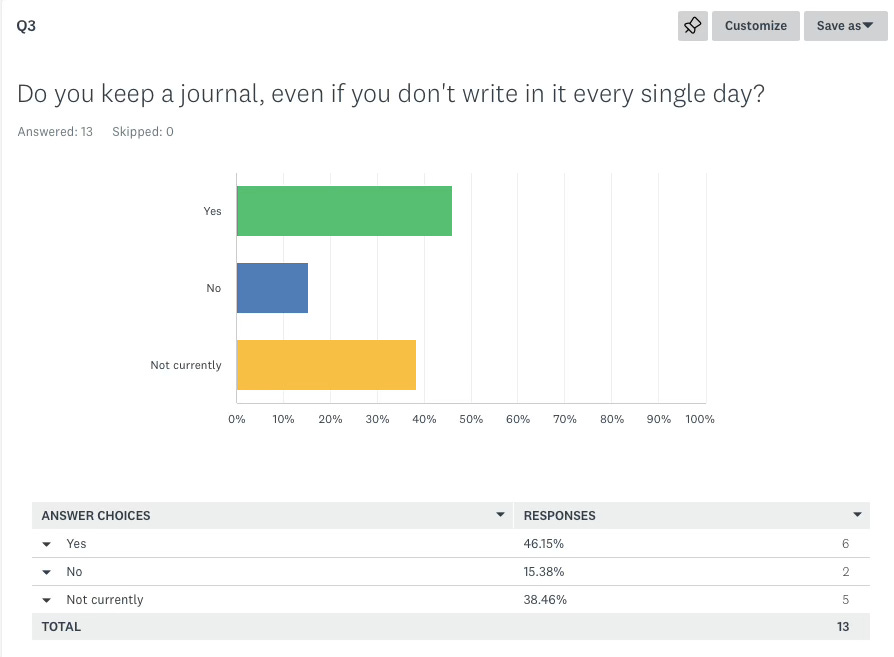
Before teaching a workshop recently, I sent out a survey to the participants. I wanted to know more about writing intentions and habits so I’d know best how to help.
The questions could also help the writers understand themselves.
Thirteen people responded, and I wanted to show you some of their responses.
Question—Do you keep a journal?
About half the writers said yes, about half said no. Here’s a screenshot of the results.

Question—Are you at work on a book?
Again, about 50 percent were at work on a book. Another 15% had an idea for one. Here’s another screenshot.

My Point
- You don’t have to write in a journal when you’re working on a book. Working on a book manuscript may be enough writing for one day.
- However, if you have an idea for a book or hope to write a book one day or even if you are at work on a book, I recommend not skipping your journal.
I advise you to try the Robert Olen Butler method of journal-writing outlined in his book From Where We Dream. Instead of writing reflection—aka generalization, abstraction, and emotional processing—write a scene every day. That’s the different between telling and showing.
Think of an emotional event of the day before, and render it “moment to moment through the senses.” Tell what happened.
Scene-writing is fantastic writing practice, infinitely useful. One single scene could become
- a flash essay
- the start of a longer essay
- a section of a chapter
- a scene in a novel.
One More Survey Question
In one question I wanted to know the writer’s intention. I was surprised at the results. Only 25 percent admitted that they wanted to write for strangers. This answer is a bit skewed, since some folks answered “Other” and then explained that they were writing for themselves or for family but hoped that the world would be interested.
If you want to write for the big world, don’t hope. Write in such a way that others will be interested in what you’re writing. Not just interested. Mesmerized. Gripped. Stunned.
To do that, you have to get out of your own head and into the heads of others. Not all the time, but some of the time. Figure out why your story will be interesting to others. Then write for them.

If It’s for You
Of course, writing for your own edification and understanding is absolutely fine too.
Survey
If you’d like to take a very similar survey, I’ve made a quick one. Take the writing habits survey here.

Leave a Reply